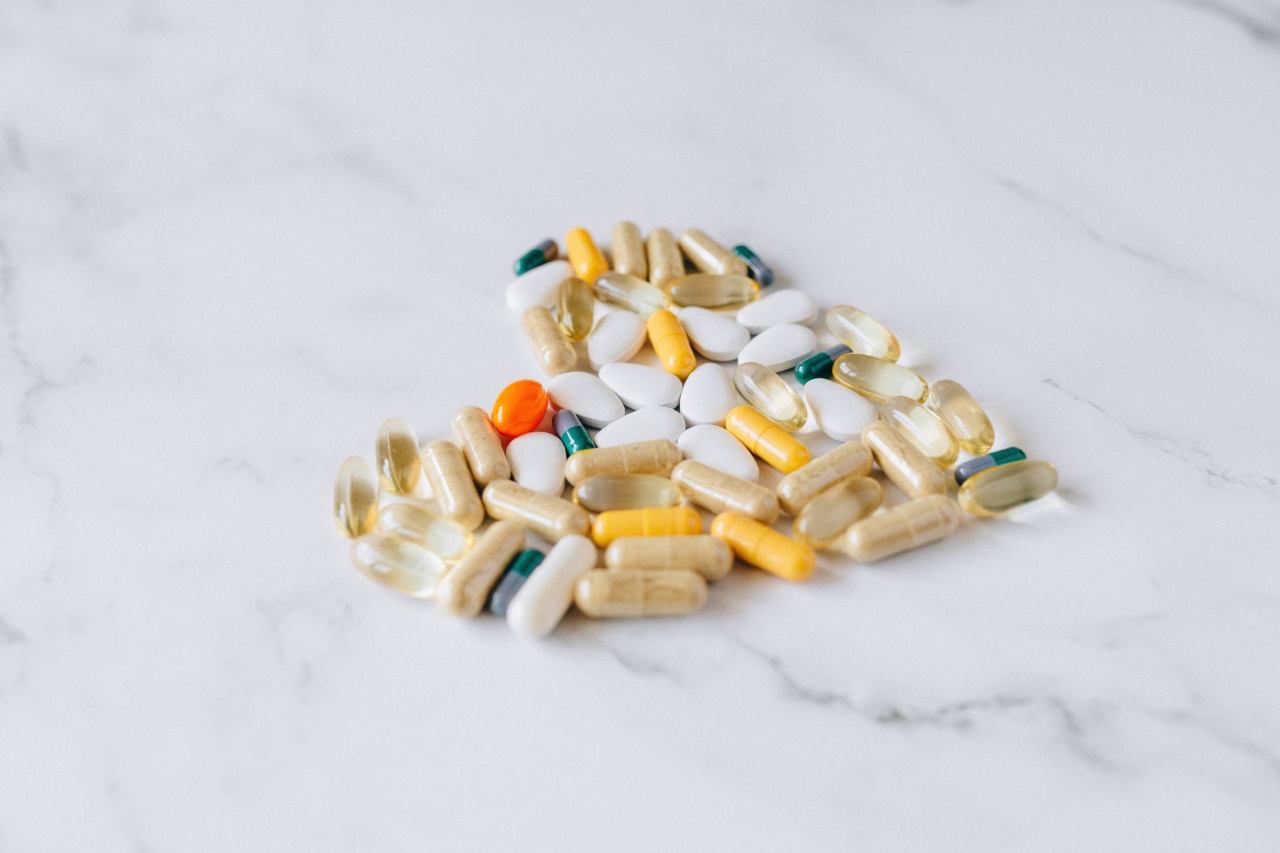Menopause is a natural phase in a woman’s life that marks the end of her reproductive years. During this time, the production of hormones such as estrogen and progesterone slows down, leading to various physical and emotional symptoms.
While menopause is a natural process, the symptoms can be uncomfortable and affect a woman’s quality of life. Many women turn to supplements to manage menopause symptoms. In this article, we will explore the best supplements for menopause symptom relief.
1. Black Cohosh
Black cohosh is a herb that has been traditionally used to manage various menopause symptoms such as hot flashes, mood swings, and vaginal dryness.
Studies have shown that black cohosh can help alleviate these symptoms by mimicking the effects of estrogen in the body. But, it’s essential to note that more research is needed to confirm its efficacy and safety.
2. Soy Isoflavones
Soy isoflavones are plant compounds that resemble estrogen and can help alleviate menopausal symptoms such as hot flashes and night sweats. Soy isoflavones are found in soy-based products such as tofu, soy milk, and tempeh.
If you’re not a fan of soy products, you can take soy isoflavone supplements. But, like black cohosh, more research is needed to confirm its effectiveness and safety.
3. Red Clover
Red clover is a herb that contains isoflavones, which can help alleviate menopausal symptoms such as hot flashes and night sweats. Red clover can also help improve bone density, which can decrease during menopause.
Like black cohosh and soy isoflavones, more research is needed to confirm the effectiveness and safety of red clover.
4. Vitamin D
Vitamin D is essential for bone health. During menopause, the risk of osteoporosis increases as bone density decreases. Vitamin D can help improve bone density and reduce the risk of fractures.
Vitamin D can also help alleviate mood swings and improve cognitive function. You can get vitamin D through sunlight exposure and supplements.
5. Magnesium
Magnesium is a mineral that plays a crucial role in many bodily functions, including muscle and nerve function and bone health. Magnesium also helps alleviate anxiety, irritability, and insomnia, which are common menopause symptoms.
Magnesium can be obtained through a balanced diet or supplements.
6. Evening Primrose Oil
Evening primrose oil is a plant-based oil that contains gamma-linolenic acid (GLA), which can help alleviate menopause symptoms such as hot flashes, mood swings, and vaginal dryness. Evening primrose oil can also help improve skin health.
But, more research is needed to confirm its effectiveness and safety.
7. Flaxseed
Flaxseed is a plant-based food that contains lignans, which can mimic the effects of estrogen in the body and help alleviate menopause symptoms such as hot flashes and night sweats. Flaxseed can also help improve heart health and reduce inflammation.
You can get flaxseed through your diet or supplements.
8. Ginseng
Ginseng is a herb that has been traditionally used to manage various menopause symptoms such as hot flashes, mood swings, and insomnia. Ginseng can also help improve cognitive function.
But, more research is needed to confirm its effectiveness and safety.
9. St. John’s Wort
St. John’s Wort is a herb that has been traditionally used to alleviate symptoms of depression and anxiety. During menopause, many women experience mood swings and depression, and St. John’s Wort can help alleviate these symptoms.
But, it’s essential to note that St. John’s Wort can interact with certain medications, so talk to your doctor before taking this supplement.
10. Ashwagandha
Ashwagandha is a herb that has been traditionally used in Ayurveda medicine to manage various health conditions, including stress, anxiety, and insomnia. During menopause, many women experience these symptoms, and Ashwagandha can help alleviate them.
But, more research is needed to confirm its effectiveness and safety.
Conclusion
Menopause is a natural phase in a woman’s life, but the physical and emotional symptoms can be uncomfortable and affect a woman’s quality of life.
While supplements can help alleviate menopausal symptoms, it’s always essential to talk to your doctor before taking any supplement to ensure it’s safe for you. Additionally, a healthy lifestyle, including a balanced diet, regular exercise, and stress management, can help manage menopause symptoms and improve overall health.






























